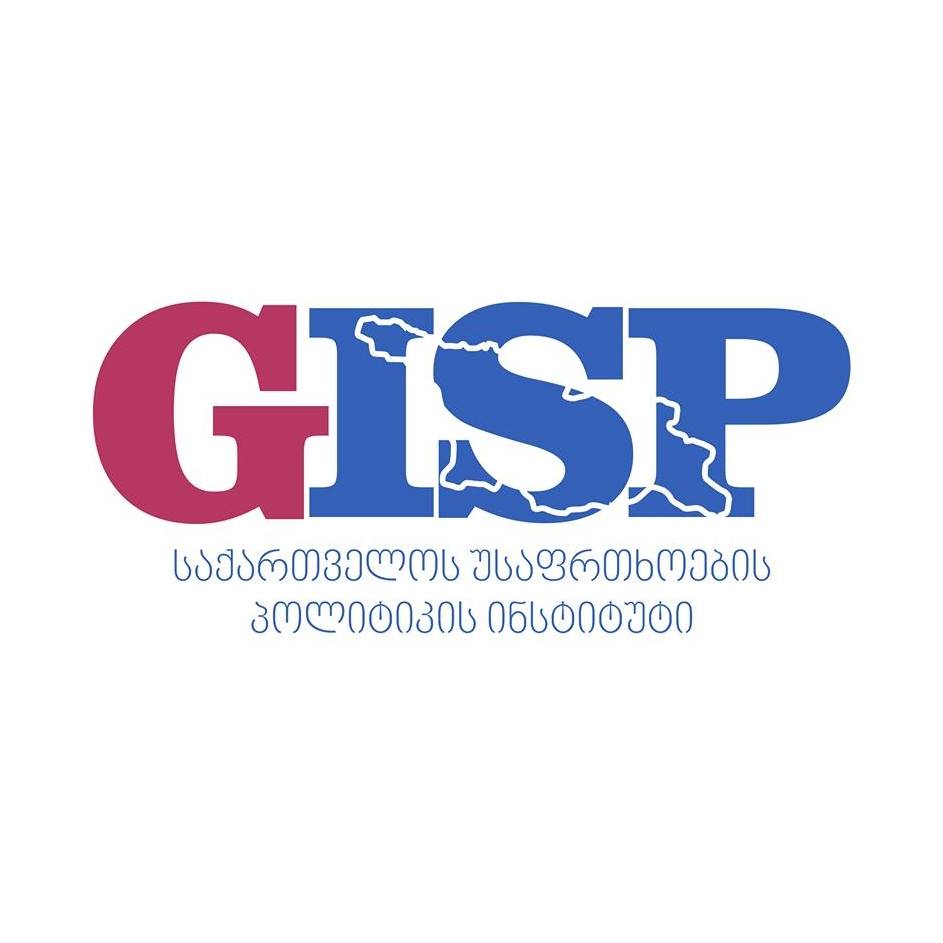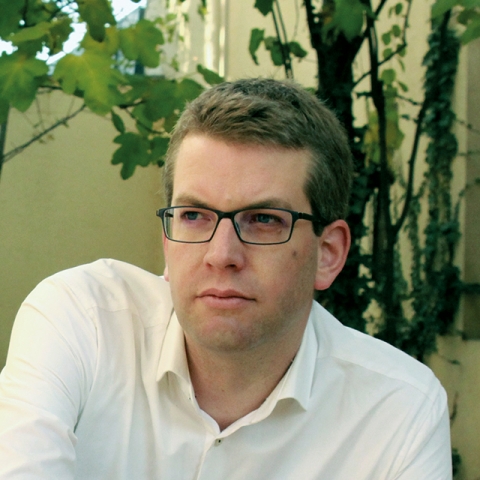Director of Friedrich-Ebert-Stiftung’s South Caucasus Office, on EaP Prospects
Exclusive Interview
Last week saw the Eastern Partnership initiative renewed (and upgraded) by the European Union beyond 2020, the Georgian Institute for Security Policy and GEORGIA TODAY spoke to Felix Hett, Director of Friedrich-Ebert-Stiftung’s South Caucasus Regional Office, about the impact the EaP has had and will have on Georgia, as well as its future prospects.
How is the coronavirus challenge going to affect the European unity as such?
The slogan is overused, but still I think it’s a challenge and an opportunity at the same time. We saw the challenge primarily at the beginning, when with the spread of the pandemic, the response in Europe was closing borders, prohibiting the export of medical equipment from one member state to the other, all these controversial decisions were there at the beginning. What we see now though is a sense of understanding, solidarity and acknowledgement that we are in fact all in the same boat. The German-French proposal on a joint EU recovery fund is the last example for this.
We saw Russia making overtures with Europe and the US, sending humanitarian aid to Italy in a badly-veiled PR move. Do you think that might change the perception of Russia in Europe, and increase its influence and standing in the near abroad?
I followed the events in Italy concerning the Russian aid sent to Italy in March, and in my view, this venture did not really pay off. It even backfired in some way, culminating in the Russian embassy in Rome criticizing an Italian journalist for their reporting on the issue. Meanwhile, it has become clear that unfortunately Russia is far from immune to the Covid-19 threat, quite on the contrary. And the question is still open as to how effective Moscow will be in handling the crisis.
Tell us your evaluation of the Eastern Partnership impact up to 2020 for the region, and Georgia in particular.
“There are two ways to look at its impact: You can look at the Eastern Partnership as a whole and then you could look at the individual track record of EU cooperation with certain countries in the EaP framework. And at the individual level, I think what has been achieved is quite impressive, for example in the context of EU & Georgia relations. Would this success have been possible without the Eastern Partnership being in place? Quite probably not. Of course, there is always more you could strive and hope for, but in the end, what the EaP has achieved and is still achieving is an understanding and constant reminder that the EaP societies are indeed part of the European family. That, for me, is the most important thing about the Eastern Partnership.”
Last week, the Council of the European Union approved conclusions on the Eastern Partnership policy beyond 2020, reaffirming its strategic importance. And the respective press-release reads that the EaP should be “a more strategic, ambitious, flexible and inclusive framework for cooperation”. Call me skeptic, but words like ambitious and flexible don’t really go hand in hand when it comes to this part of the world. We asked Mr Hett just how ambitious the new EaP can be while retaining its flexibility, and vice versa.
“I think a lot of things might seem paradoxical about the European Union,” he told us. “It has an incredibly complex political structure and, frankly, if you expect the external policy of the EU to be as straightforward as the foreign policy of a small city-state, you might end up disappointed. It’s an unavoidable ambiguity that affects the Eastern Partnership policy as well. I think the idea of flexibility comes out of the history of Eastern partnership and to a certain extent reflects the institutional learning of the EU, because the Eastern Partnership and its history have been full of positive as well as negative surprises.”
What are the biggest challenges ahead for the Eastern Partnership to be as ambitious and flexible as the EU commands it to be?
“For me, it's very simple. I think the biggest challenge is to achieve the declared goal. Now, if you look at the documents, it says we want to deliver tangible benefits to the daily lives of people across the region. That is the biggest challenge, which is complicated by the apparent emergence of China as an alternative role model for development. To be a bit more specific, the EU usually describes the expansion of mutual trade as one of the successes of the Eastern Partnership. I think in the long run, it is not enough to increase trade volumes: if the EU wants to deliver tangible benefits, for example to the people of Georgia, the huge trade deficit that Georgia experiences in mutual trade has to gradually disappear. Georgia needs to export more, because that would create jobs here. With its negative trade balance, Georgians create employment in the EU.”
One of the cornerstones of Eastern partnership is the need for genuine reforms, but when we compare the membership path reforms and those of EaP variety, there are two different approaches. In the membership's case, there is the conditionality criteria and in the Eastern partnership, we hear that the reforms should be carried out for their own good and there should not be anything expected in return. Mr Hett works and lives in Georgia and has a profound understanding and knowledge of the Eastern Partnership countries in general. We asked him if he thinks it is enough of an incentive for this country and other Eastern Partnership countries not to stray from the path of reforms.
“I think the problem of lack of conditionality is precisely about the membership perspective, which is currently not on the table,” he says. “From my understanding of what a democracy is and how societies should function, it is the right approach because the reforms in themselves should not be carried out to please any external power; they should be carried out for the good of the people, and because the people demand them. With my understanding of democratic processes, I think to put the stress on the responsibilities of societies seems to be the right approach.”
Apart from membership, what leverage does the EU have to ensure genuine reform in these countries?
“I think the most important leverage is to be part of the process, to increase the exchange, to have constant communication, not to allow societies or countries to live in their own bubble, to always have the outside reflection, and to make sure that feedback on how certain steps are viewed from the outside reaches decision-makers and societies alike.”
We note there is a political loophole that also gives an increased risk of fake aid reforms, where the government basically builds a “Potemkin village” to appease external powers. The reforms seemingly are passed, but they stay on paper. We ask him, what ways are there to combat that, aside from optimistically hoping from Brussels that Georgian society will be knowledgeable enough to see through the ruse?
“I think democracy is a long-term game and in the end, ultimately, there is no escaping the fact that it has to be pushed through by society," he tells us. "I do not think democracy is granted from above by enlightened leaders: it has to be fought for and won by the societies themselves. The role of the EU is to support societies in this process. They cannot replace the societies: I do not believe that democracy can be imposed from the outside. The attempt to win democracy through conditionality precisely leads to this kind of facade that you described.”
There are a number of high profile authors who proposed some sort of alternative to this, in the form of shared sovereignty, which means that the EU should engage in at least partial direct supervision to counter these non-genuine reforms and autocratic tendencies in some of the Eastern Partnership countries. We asked Mr Hett for his take on it.
“I see that as a call for some kind of self-imposed, enlightened colonialism. I am very skeptical about this approach for the reason I just mentioned, because it runs counter to my ideas of democracy. And it might also lead to a sort of blame game and finger-pointing, where suddenly the government is no longer responsible for the social and economic situation in their countries but the blame will lie somewhere else.
In 2017, at the EaP Summit, the “20 deliverables by 2020” initiative was presented. How many of those have been delivered so far?
I think the 20 Deliverables are a bit problematic. They include, for example, general goals such as “strengthening the rule of law”. That is of course a very important goal, but it is a qualitative one that is hard to measure. So, for each and every goal you could have a long discussion if the Eastern Partnership has delivered or not. It is different with the EaP European School, which is goal No. 19. It is there, you can tick the box, but that is one of very few deliverables where the answer is so straightforward.
Tell us about the Russian factor and the influence it has on the Eastern Partnership and its future prospects.
I have a feeling that in the Eastern Partnership context, the Russian factor is sometimes overemphasized. I do not think that the EU designs every EaP policy applying a “what will Moscow think?”-filter. And I’m not convinced that Russia is actually following the policy so closely. I would like to point to the case of Armenia, which shows that democratic progress is possible without alienating Russia. On the other hand, I see a certain risk with this announcement of the new commission being more geopolitical, because I think that this is a word that triggers attention in Moscow. So far, the official EU line in my understanding was always that the EaP is a non-geopolitical project, and suddenly there is this announcement by the Commission to enter the realm of geopolitics. I am not sure what this means, and how it will play out for the Eastern Partnership.
By Vazha Tavberidze













